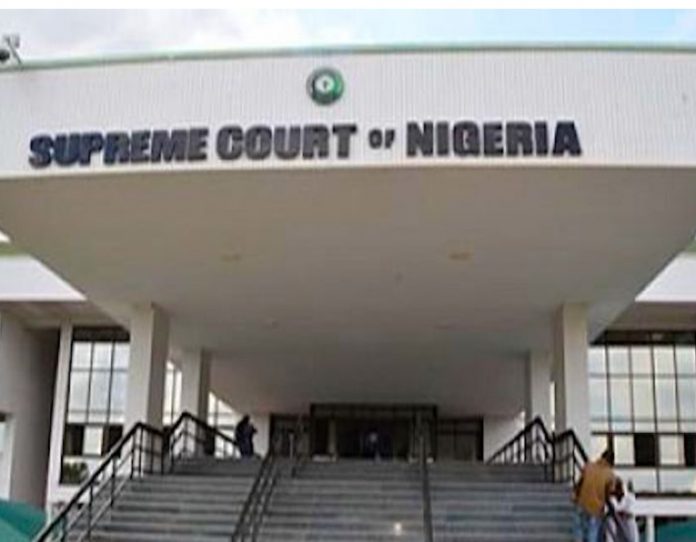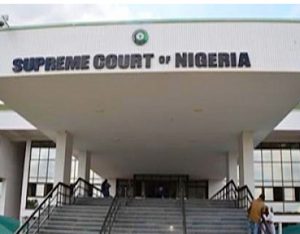Supreme Court
By Tony Folarin
The existence of the Economic and Financial Crimes Commission may be under threat as the Supreme Court has scheduled October 22 to hear a suit filed by 16 state governments challenging the legality of the Economic and Financial Crimes Commission.
The suit, instituted by the Kogi State government and 15 other states, is contesting the constitutionality of the laws establishing the EFCC.
A seven-man panel of Justices, led by Justice Uwani Abba-Aji, on Tuesday, fixed October 22 for hearing after the states were joined as co-plaintiffs and leave granted for consolidation of the case in the suit originally filed by the Kogi State government through its Attorney General.
The 15 other states joined in the suit, marked: SC/CV/178/2023, are Ondo, Edo, Oyo, Ogun, Nassarawa, Kebbi, Katsina, Sokoto, Jigawa, Enugu, Benue, Anambra, Plateau, Cross-River and Niger.
When the case was called on Tuesday, the counsel representing the various states in the matter made their submissions.
While the majority sought to be joined as co-plaintiffs, two of the states prayed for an order for consolidation of the case.
Abdulwahab Mohammed (SAN), who appeared for the Kogi State attorney general, told the court that there were states seeking to be joined as co-plaintiffs.
“It is for this honourable court to tell us how to proceed, My Lords. Out of about 15 states, about 13 have indicated interest in being co-plaintiffs, and only two want consolidation.
“To make the task of the court easier, those who want to be joined as co-plaintiffs should be joined and abide by the processes already filed, and those who sought consolidation should be asked to file within seven days,” Mohammed said.
After the lawyers’ submissions, Justice Abba-Aji granted their prayers and adjourned the matter till October 22 for a hearing.
All 16 states in the suit are contending that the formation of the EFCC breached constitutional provisions.
According to them, the provision of the Constitution necessitated the majority of the states’ Houses of Assembly agreeing before passing the EFCC Act and others, which was allegedly never done.
Hence, they argued that any institution so formed should be regarded as an illegal institution.
Among other reliefs, Kogi State, which is the original plaintiff, wants “A declaration that the Federal Government of Nigeria through the Nigerian Financial Intelligence Unit or any agency of the Federal Government lacks the power to issue any directive, guideline, advisory or any instrument howsoever called for the administration and management of funds belonging to Kogi State of Nigeria or any Local Government Area of Kogi State.
“A declaration that the EFCC, the NFIU, or any agency of the Federal Government of Nigeria cannot investigate, requisition documents, invite and or arrest anyone with respect to offences arising from or touching on the administration and management of funds belonging to Kogi State of Nigeria or any Local Government Area of Kogi State.”
The suit comes amid the move by the EFCC to trial the immediate-past Kogi governor, Yahaya Bello, for an alleged N110bn fraud.
In July, the Kogi State House of Assembly passed a bill for the creation of a state-owned anti-graft agency, which the state Governor, Usman Ododo, immediately signed into law.


